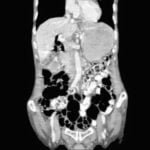Chronic Constipation: Causes and Measures to Help
Chronic constipation is a common gastrointestinal condition characterized by infrequent, difficult, or incomplete bowel movements that persist for several weeks or longer. It can significantly impact an individual’s quality of life, causing discomfort, bloating, and a feeling of incomplete evacuation. Understanding its causes and implementing effective measures can help manage and relieve symptoms.
Causes of Chronic Constipation
Several factors can contribute to chronic constipation, including:
- Dietary Factors – A diet low in fiber and inadequate fluid intake can lead to hard and dry stools, making bowel movements difficult.
- Lifestyle Habits – Lack of physical activity and a sedentary lifestyle slow down bowel motility, leading to constipation.
- Ignoring the Urge – Frequently delaying bowel movements can cause the stool to become harder and more difficult to pass.
- Medications – Certain medications, such as opioids, antidepressants, antacids containing aluminum or calcium, and iron supplements, can contribute to constipation.
- Medical Conditions – Conditions such as hypothyroidism, diabetes, irritable bowel syndrome (IBS), Parkinson’s disease, and multiple sclerosis can affect bowel function.
- Neurological or Structural Issues – Nerve damage, pelvic floor dysfunction, or colon abnormalities can cause chronic constipation.
- Psychological Factors – Stress, anxiety, and depression can affect digestive health and contribute to constipation.
Measures to Help Relieve Chronic Constipation
A combination of lifestyle modifications, dietary changes, and medical interventions can help manage chronic constipation effectively.
- Increase Fiber Intake – Consuming a diet rich in fiber (25-30 grams per day) can help soften stools and promote regular bowel movements. Foods high in fiber include whole grains, fruits, vegetables, legumes, nuts, and seeds.
- Stay Hydrated – Drinking adequate fluids (at least 6-8 glasses of water per day) helps keep stools soft and easier to pass. Warm fluids in the morning, such as herbal tea or warm water, may also stimulate bowel movements.
- Exercise Regularly – Physical activity, such as walking, jogging, yoga, or stretching, can enhance bowel motility and reduce constipation.
- Establish a Routine – Setting aside time each day to use the toilet, particularly after meals, can help regulate bowel habits. Avoid suppressing the urge to pass stools.
- Use Natural Remedies – Prunes, flaxseeds, and psyllium husk are natural laxatives that can help promote bowel movements.
- Avoid Processed and Low-Fiber Foods – Reducing intake of processed foods, fast food, and excessive dairy can help prevent constipation.
- Manage Stress – Practicing relaxation techniques such as meditation, deep breathing, or mindfulness can support healthy digestion.
- Consider Laxatives if Necessary – If dietary and lifestyle measures are ineffective, occasional use of bulk-forming or osmotic laxatives may be recommended under medical supervision.
- Seek Medical Advice – If constipation persists despite lifestyle changes, or if symptoms include unexplained weight loss, blood in stools, or severe pain, medical evaluation is necessary to rule out underlying conditions.
Making consistent changes in diet, hydration, activity levels, and bowel habits can significantly improve chronic constipation and prevent complications.
Join the mailing list!
Get the latest articles delivered right to your inbox!




